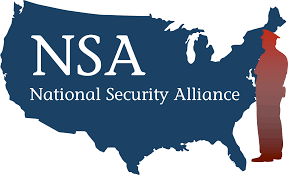
Online Training
How to Become a Security Guard?
Defencify
According to 2021 U.S. Bureau of Labor Statistics data, the overall forecast for the employment of security guards and gambling surveillance officers is projected to grow 15 percent from 2020 to 2030, faster than the average for all occupations. In fact, an average of 165,000 openings for security officers are projected each year over the decade.
There is job security in security. Once certified, it’s a skill you can take with you wherever you go. Live where you want, move as often as you’d like. There will always be jobs waiting for experienced security officers.
You’ll most likely have to get re-licensed if you move out of state (most Guard Cards are not transferable between states), but that’s usually not an issue.
You’ll meet all sorts of interesting people, learn and see a lot of things most folks never will. But being a security guard is hard work and it’s not for everyone. There can be long stretches of lonely hours on shift requiring lots of walking, standing, or watching video monitors – all with constant vigilance.
Plus, the job exposes guards to physical injury from criminals or irate customers. To combat turnover, many security guard companies go to great lengths to retain their best employees, so there are lots of perks to be had by those who make the grade.
Process to Become a Licensed Security Guard is Relatively Simple:
-
Find a provider of state-approved training for unarmed security guards. Depending upon your state, training may be delivered through live instruction or online courses. Caution: Before enrolling, make sure the program is certified with your state’s licensing authority in order to receive the certificate you must submit for a Guard Card. Agencies will often list accredited schools on their website.
-
Upon completion, submit your application to the state licensing authority for processing. A simple web search for Department of Public Safety (DPS), Department of Commerce, or Professional State Licensing Bureau will identify the proper agency for security guard licensing in your state. This will initiate series of actions including fingerprinting as well as separate state and federal background checks. A processing fee is usually required.
- Begin your job search upon receipt of confirmation of your application. There’s no need to wait. Some agencies will issue a temporary or interim license, especially if you are already licensed in another state or come up clean on the preliminary state background check. Many firms will conditionally hire you or offer a letter of employment pending final approval of your application.
Some Prerequisites to Become a Security Guard:
- You must be at least 18 years old; 21 to apply for work at casinos and gambling establishments, and be legally allowed to work in the United States.
-
A high school diploma is typically required; a college degree is not.
-
Some firms may require that you have a driver’s license and/or access to a vehicle.
-
Periodic and/or random drug testing will be required.
-
Most shifts are eight (8) hours in duration but be prepared to start work at any time of the day or night.
-
Candidates must be physically able of performing the job, which many involve physical altercations. While Equal Employment Opportunity (EEO) legislation prevents discrimination on the basis of age, ethnicity, sex, or disability, hiring managers will take your bodily condition into consideration. Some may require a physical exam.
-
Your verbal communication and interpersonal skills will also be evaluated during the hiring process. In addition to being proficient in English, employers will want to gauge how well you comprehend instructions, communicate with co-workers, and interact with the public. Some firms may ask you to take an aptitude test.
-
The vast majority of states, but not all, require security guards be licensed and undergo formal training in roles and responsibilities of public safety officers, use of force, de-escalation procedures, crowd control, CPR, etc. The topics and number of hours for certification are determined by each state licensing agency. Most states will require recertification every two years.
Therefore, before you begin training or attempt any kind of job search it is highly recommended that your first task be to research the state requirements for employment as a security guard and make sure there is nothing on your record that would disqualify you such as a DWI, burglary, or fraud charge.
Most agencies publish their licensing prerequisites and disqualifiers online. Look for sections entitled Moral Character, Eligibility Requirements, Qualifications for Licensure or similar heading while visiting your state licensing authority’s website.
If the answer is yes, you may need to see a lawyer to attempt to have your record expunged before proceeding.
If you are not sure if a low-level misdemeanor like a drunk and disorderly citation from several years ago rises to the level of disqualification, call the state licensing board and talk to someone to see if it will be a non-starter.
Accelerate your Process with Defencify
Being a security guard is both challenging and rewarding. While there will always be some hoops to jump through in any job search, finding quality state-approved training to get the process started shouldn’t be one of them.
That’s where Defencify comes in. We currently offer state-certified, self-paced online unarmed security guard training in 11 states and counting. Defencify courses are designed in partnership with each state licensing authority to ensure they meet the state-specific requirements for you to earn a Guard Card.
Defencify courses are built using modern eLearning standards and incorporate interactivity and engaging scenarios to communicate learning points. You can take or repeat any course at the time, place, and using the device of your choosing for maximum convenience.
Defencify is an affordable, fast-paced alternative to days-long classroom sessions. Get started on your security career journey today. Visit us at www.defencifytraining.com to learn more.










